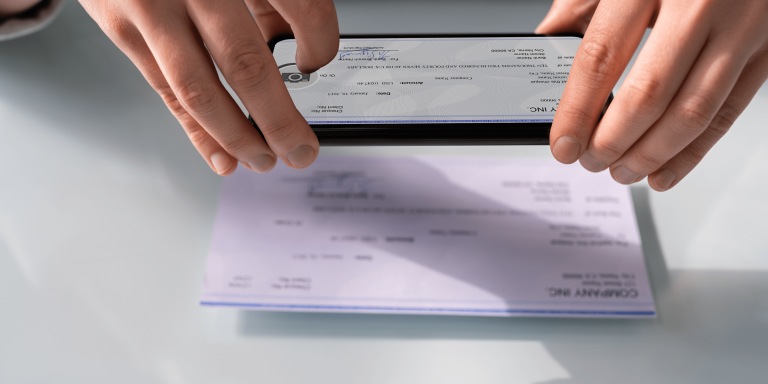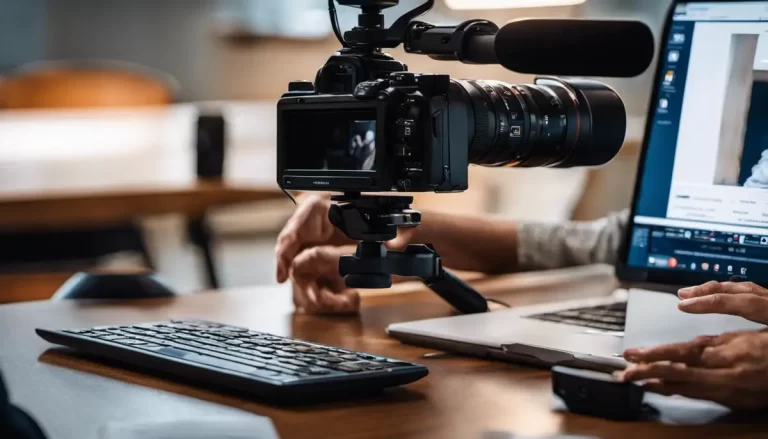Virtual hearings have transformed legal proceedings. Remote proceedings have become popular because of COVID-19 and social distancing, offering a safe and efficient alternative to in-person hearings. Legal practitioners must stay up to virtual hearing rules as they change.
Changes in the rules for virtual hearings
Changes to virtual hearing rules have greatly affected legal proceedings. To effectively serve justice, courts and law firms have had to adapt to remote work and digital technologies.
An important change is the acceptance of virtual hearing platforms. Previously, legal proceedings required courtrooms, but today Zoom and Microsoft Teams are used. Case parties can participate remotely, saving travel costs and logistical hassles.
Additionally, document submission methods have changed. Attorneys traditionally present tangible copies of the papers as evidence in proceedings. With virtual hearings becoming more common, electronic filing methods are being used. Time saved, paper waste reduced, and accessibility improved.
Remote deposition authentication has also changed. Guidelines require video conferencing participants to verify their identity to prevent fraud. Multi-factor authentication and secure login credentials improve security and confidentiality.

Impact on remote deposits
The new virtual hearing regulations have changed several legal proceedings. Remote deposits have been damaged. In virtual hearings, remote financial deposits are essential for smooth operations.
Remote deposit protocols were tightened due to virtual hearings. Lawyers and clients must adjust to these developments to comply with new rules.
Remote deposits face greater security requirements. Virtual hearings rely heavily on technology, therefore distant financial deposits must be secure. Encrypted systems or stringent authentication may protect sensitive financial data.
Remote deposit speed and efficiency are also influenced by the new laws. Virtual hearings are time-sensitive, therefore attorneys and clients must conduct deposit transactions quickly. Delays or errors can stall cases.
Benefits of using remote deposits during virtual hearings
Remote deposits can benefit lawyers and clients during virtual hearings. Consider these significant benefits:
1. Convenience: Remote deposits save lawyers time by eliminating the need to deposit documents in person. This convenience lets them focus on hearing preparation and other key meetings.
2. Cost savings: Remote deposits save firms money on traveling, housing, and food. This benefits small organizations and lone practitioners on restricted budgets.
3. Accessibility: Remote deposit technology lets lawyers securely access vital papers from any internet-connected location. This allows them to participate remotely in hearings without sacrificing document submission accuracy or timeliness.
4. Efficiency: Attorneys can scan and submit several documents at once with remote deposit tools, speeding up depositions. No longer must they send or hand-deliver hard copies of documents.
5. Collaboration: Many remote deposition solutions allow attorneys and their teams to collaborate in real-time. While maintaining data security, lawyers can effortlessly communicate files with remote colleagues.
6. Security: Remote deposit platforms focus on data encryption and secure storage for sensitive legal information transmission during virtual hearings.
By using these benefits, lawyers can improve efficiency and comply with new virtual hearing requirements, enhancing client happiness and outcomes.
Challenges and solutions for conducting remote deposits during virtual hearings
Remote deposits during virtual hearings provide security and integrity problems. These transactions include sensitive financial information, thus strong processes are needed to prevent fraud and data breaches. Strong encryption and secure systems reduce these concerns.
Managing depositions with several participants in different places is another challenge. Establish clear communication channels and expectations for document submission dates and requirements. Online collaboration solutions let everyone access the necessary files at once, simplifying this process.
Technical difficulties can also hinder remote deposits during virtual hearings. Internet connectivity or software issues might delay or defer events. To overcome this, test thoroughly before any hearing to discover potential concerns.
Remote deposits during virtual hearings require good record-keeping. As parties exchange many digital documents, organizing and controlling them is essential for eventual retrieval. Cloud-based document management systems simplify and enable cross-device access.
Remote deposit solutions for virtual hearings must be implemented to address these issues. Legal practitioners can overcome these hurdles by investing in strong cybersecurity, supporting smooth communication, proactively addressing technical issues, and using appropriate document management procedures.

Tips for successfully using remote deposits during virtual hearings
1. Select the proper technology: Remote deposits require the right technology. Find a safe platform that lets you upload files and sign electronically. This will streamline virtual hearing deposits.
2. Prepare ahead: Have all deposition materials ready before the virtual hearing. Ensure they are scanned and categorized digitally. Preparation saves time and prevents last-minute issues.
3. Test your equipment: Technical issues might disturb a virtual hearing, so test your equipment before the deposition. Make sure your internet, camera, microphone, and remote deposit software works.
4. Know the rules: Remote depositions during virtual hearings vary by jurisdiction. Learn these regulations to ensure compliance throughout the procedure.
5. Communicate clearly: Remote deposits during virtual hearings require good communication. Everyone involved should know how to use remote deposit tools for deposition.
6. Maintaining professional etiquette: A virtual hearing with remote deposits shouldn’t impair professionalism.
7. To secure confidential information, use security measures like encrypted file-sharing platforms and password protection.
8. Carefully monitor document submission deadlines after using remote deposit services.
Follow these ideas to maximize efficiency and comply with new remote deposit virtual hearing rules!
Conclusion
Remote deposits during virtual hearings must balance efficiency and compliance with the new standards. While rule adjustments may be difficult, remote deposits have several advantages.
Remote deposit technology helps lawyers save time and money and secure transactions during virtual hearings. Remotely submitting evidence and conducting financial transactions streamlines the procedure.
Staying current on virtual hearing rules is crucial. Keep up with changing rules to use remote deposit solutions efficiently.
Remote deposit success in virtual hearings:
1. Stay informed: Follow any changes to virtual hearing processes and regulations in your jurisdiction.
2. Choose a trustworthy platform: Choose a remote deposit service provider with strong encryption and authentication to protect sensitive data.
3. Testing before use: Trials run before your hearing date will help you understand the system and avoid technical issues.
4. Communicate clearly: Give all hearing parties precise instructions on depositing deposits remotely in advance to avoid confusion.
5. Keep records: Keep complete records of all submitted documents and transactions for future reference or hearing disputes.
Although efficiency is important, legal compliance should never be sacrificed. Always follow the laws when making remote deposits during virtual hearings.











